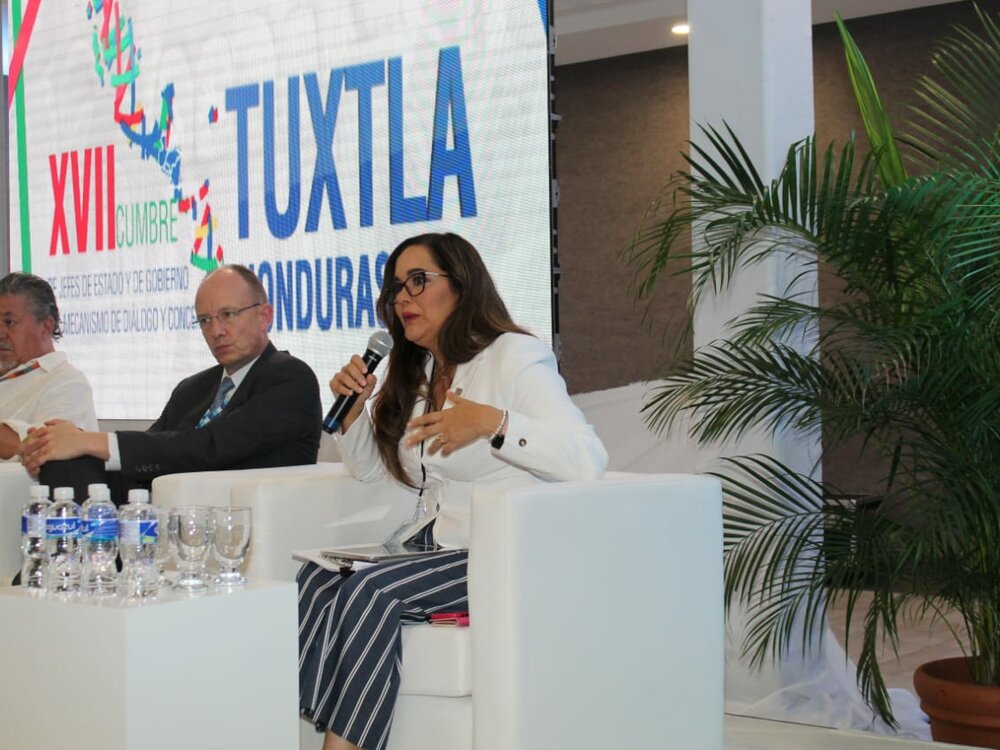CABEI allocates approximately US$10.3 billion to infrastructure in order to improve competitiveness in Mesoamerica

CABEI invests in the implementation of projects that support the improvement of the quality of life of the region's inhabitants and that contribute to achieving the Sustainable Development Goals (SDGs).
San Pedro Sula, August 22, 2019.- As part of its sector intervention framework in productive infrastructure, which includes highways, ports, airports, railways and telecommunications since its founding and through 2018, the Central American Bank for Economic Integration (CABEI) has invested more than US$10.3 billion.
The Bank has established objectives, strategic initiatives, themes and associated goals for the provision of a technologically sustainable, socially inclusive and environmentally resilient productive infrastructure.
The above is equivalent to 28.99% of the total amount approved in all its focus areas through 2018 in nine countries of Mesoamerica: Guatemala, El Salvador, Honduras, Nicaragua, Costa Rica, Belize, Panama, Dominican Republic and Colombia. Regarding highways and bridges, including border crossings, the approved investment reached close to US$7.0 billion; ports and airports received US$1.2 billion, and US$1.3 billion went to telecommunications.
To implement the proposed sector framework, the Bank has different financial instruments for both the public and private sectors, including direct or co-financed loans with other multilateral credit organizations, credit guarantees, leases, trusts, reimbursable and non-reimbursable technical cooperations, preinvestments, structured loans and equity investments.
With this important number of instruments, CABEI has developed different and important financial mechanisms to address the economic infrastructure in the countries, which are analyzed pursuant to each specific case, promoting the cooperation of both sectors through Public-Private Partnership models.
Focusing on high-impact projects
In order to attend new modes of freight and passenger transportation and adhering to the “Policy of the Regional Mobility and Logistics Framework,” which seeks that Central America have a modern rail system, CABEI is promoting the development of the railway infrastructure and its intermodal connection through electromobility based on the reduction of CO2 and the resilience of the construction technologies of this transportation mode. As part of this important initiative, the Bank is supporting the formulation and subsequent approval of important projects such as, the Electric Passenger Train and the Limonense Freight Train in Costa Rica and the Pacific Train in El Salvador, in which private sector investment will be streamlined.
The strategic alliances, the instruments and mechanisms that materialize them and the management of resources together with other multilateral and bilateral organizations has encouraged CABEI to invest in the implementation of projects that support the improvement of the quality of life of the region's inhabitants and that contribute to achieving the goals of the SDGs related to halving the number of deaths and injuries caused by road accidents; achieving full and productive employment; developing quality, reliable, sustainable and resilient infrastructure; and significantly increasing exports from developing countries.


![[Translate to English:] [Translate to English:]](/fileadmin/_processed_/e/3/csm_WhatsApp_Image_2024-04-18_at_2.12.23_PM__2__590ef43ade.jpeg)
